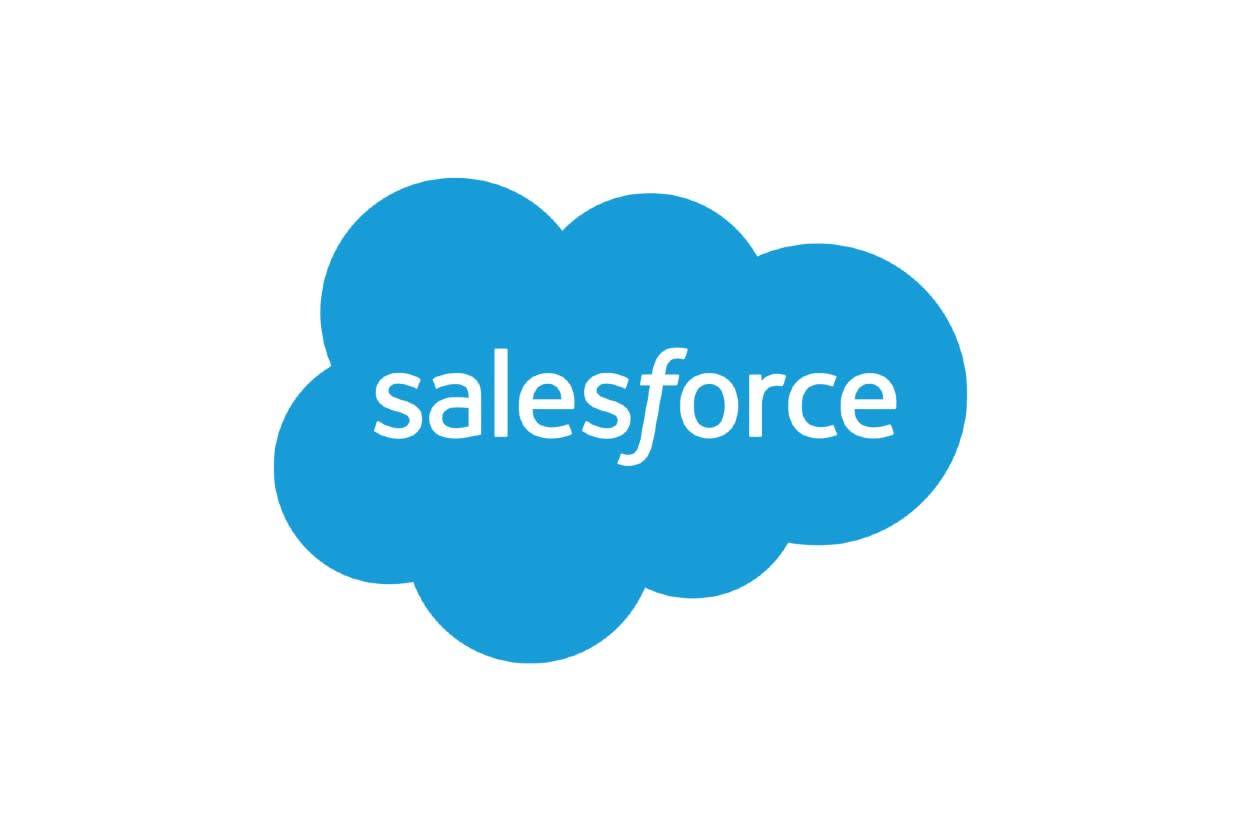Salesforce reported second-quarter revenue of $10.2bn, up 9% ignoring currency moves. Within that, Subscription & Support revenue rose 9% to $9.7bn. Underlying operating profit rose 11.6% to $3.5bn.
Free cash flow fell 20% to $0.6bn. Net cash, including leases, was $4.1bn at the end of the period . The group returned $2.2bn through buybacks plus $0.4bn in dividends.
The group expects to deliver 8% revenue growth, ignoring currency, for both the third quarter and the full year.
The shares fell 6.0% in after-hours trading.
Our view
Salesforce faces renewed pressure as one-off wins from the second quarter are unlikely to repeat, and guidance points to slower growth ahead. It’s been a challenging year, with the entire software sector under strain amid concerns about disruption from AI-driven competitors.
Salesforce is a cloud platform giant that helps businesses manage customer relationships, sales, and marketing in one place.
There are two major levers for growth from here. Firstly, through better bundling of its cloud products and improved use of its treasure trove of data. There’s a very clear correlation between annual recurring revenue per customer and the number of cloud products they adopt.
The trick is to ensnare customers so deep into the ecosystem that it becomes very hard to ever leave. Salesforce, with its huge breadth of interlinked products from sales and marketing to customer service, is well-placed to do just that.
Artificial Intelligence (AI) is the other major growth lever, and the Agentforce platform allows customers to build AI agents that can work alongside humans to analyse data, make decisions, and take actions autonomously.
Salesforce is saying all the right things when it comes to AI agents, and over 6,000 paid AI deals is a promising start. But with around 150,000 customers and guidance pointing to another year of slowing growth (albeit only marginally), these deals aren’t dial movers just yet.
Markets have reigned in their optimism around AI agents having a near term impact, which we tend to agree with. Of all the AI tech, agents are the newest innovation. But we think it’s a matter of when, not if, they take off. Still, investors will need a bit of patience.
Cost controls mean cash flow is in a much better place than it was a few years ago. The balance sheet has plenty of wiggle room too, giving scope to support ongoing buybacks, a recently introduced dividend, and acquisitions. As ever, nothing is guaranteed.
Salesforce has a great product range, with a wide array of data and growth levers to pull. Markets are expecting low double-digit earnings growth over the next couple of years, which looks reasonable to us. If delivered, we see a good amount of upside on offer to a stock that’s been under pressure of late.
That said, the risks of disruption are real, and management needs to demonstrate consistent progress toward an AI agent-driven acceleration of top-line growth - even if it does take a couple of years to arrive.
Environmental, social and governance (ESG) risk
The technology industry is low risk in terms of ESG, though some segments are more exposed, like Electronic Components (environmental risks) and data monetisers (social risks). Business ethics tend to be a material risk within the tech sector, ranging from anti-competitive practices to intellectual property rights. Historically the sector has flown under the radar when it comes to regulatory oversight, but more recently we’ve seen regulators keen to get involved given the high-profile of some of the “big tech” names. Other key risk drivers include labour relations, data privacy, product governance and resource use.
According to Sustainalytics, Salesforce’s management of material ESG issues is strong.
Salesforce’s nominating and corporate governance committee periodically reviews the company’s ESG initiatives, while its cybersecurity team conducts regular assessments and operates 24/7 for incident response. The company also conducts annual employee surveys, runs an apprenticeship program. There’s also an audit committee overseeing compliance and ethics, supported by a third-party hotline for anonymous reporting.
Salesforce key facts
All ratios are sourced from LSEG Datastream, based on previous day’s closing values. Please remember yields are variable and not a reliable indicator of future income. Keep in mind key figures shouldn’t be looked at on their own – it’s important to understand the big picture.
This article is not advice or a recommendation to buy, sell or hold any investment.No view is given on the present or future value or price of any investment, and investors should form their own view on any proposed investment.This article has not been prepared in accordance with legal requirements designed to promote the independence of investment research and is considered a marketing communication.Non - independent research is not subject to FCA rules prohibiting dealing ahead of research, however HL has put controls in place(including dealing restrictions, physical and information barriers) to manage potential conflicts of interest presented by such dealing.Please see our full non - independent research disclosure for more information.


